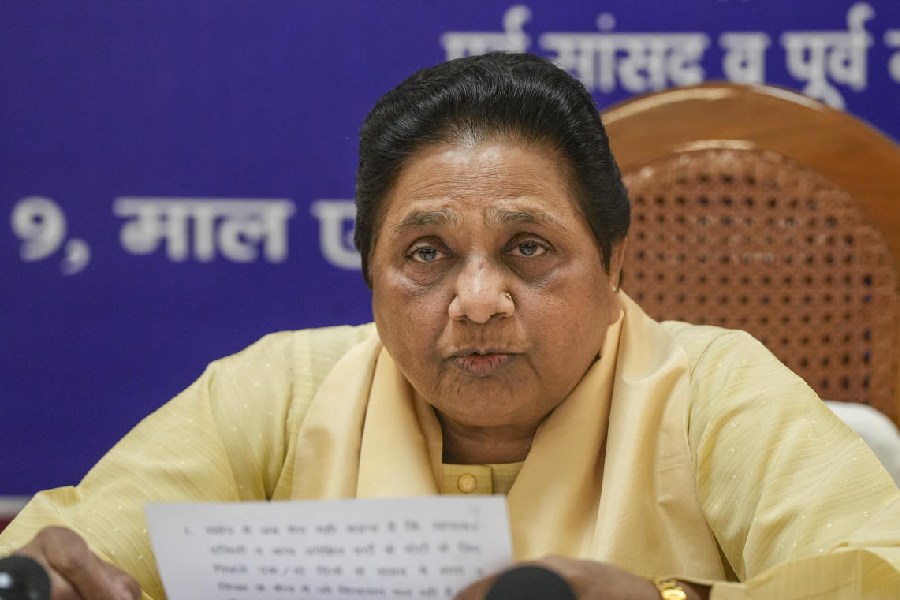DATELINE DHAKA: Sharply contrasting signals and scenes have been emerging from embroiled Bangladesh in the four days since Prime Minister Sheikh Hasina was forced to resign and flee to India on Monday.
This, even as the new interim regime led by Nobel Peace Prize winner Muhammad Yunus set several priorities — like restoration of law and order, creation of an inclusive country, allowing freedom of expression and upholding democracy — as part of its plan to rebuild a post-Sheikh Hasina Bangladesh through social reforms and reconstruction of the state.
Needless to say, the list of intentions looks commendable and it will take some time to deliver on the promises that the new leaders of Bangladesh, who seem to be enjoying popular support, are rolling out.
However, the contrasting signals and scenes point to the monumental challenges that the interim government is up against.
Law & order
M. Sakhawat Hossain, home affairs adviser to Yunus, said the interim government would first try to improve law and order, a claim reiterated by foreign affairs adviser Touhid Hossain.
In reality, the establishment of law and order seems to be a distant dream as unprecedented attacks on law enforcers — resulting in the death of hundreds of policemen — have crushed their confidence. Some new appointments to key positions, such as the police chief, have been made to restore order in the police force. Some police stations in Dhaka began functioning from Friday afternoon.
“Large parts of rural Bangladesh do not have police and other agencies, and rampant looting is on.... Even Dhaka has witnessed a spate of robberies in the last 100 hours or so. People are forming resistance groups to save their lives and properties,” said a civil society member.
Over the last few days, Bangladesh has seen students managing traffic and playing a role in restoring law and order, which has been lauded by a section of society.
“The students should go back to the classrooms. It cannot be their job as it will deepen the anarchy,” the source added.
Inclusive call
Prominent anti-Hasina faces in Bangladesh — led by Yunus and BNP acting chairman Tareq Rahman — have called for an inclusive Bangladesh and urged people to protect the minority communities.
The ameer of the Jamaat-e-Islami, Shafiqur Rahman, visited the Dhakeshwari Temple in Dhaka, met community leaders and promised to protect them.
The current situation, however, makes it clear that the message has not trickled down to the ground.
In a letter to Yunus, the Bangladesh Hindu Buddhist Christian Oikya Parishad on Friday reported 205 incidents of minority persecution. It cited reports of thousands of Hindu families becoming destitute, attacks on temples, assaults on women, and rampant murders.
“The Bangladeshi media is not reporting the scale of the gravity.... There is also a narrative that the attacks are political and not communal. The reality is, we are facing attacks and it’s a systematic plan to eliminate Hindus,” a prominent Hindu leader said.
“So many women have been raped, but they don’t have the courage to come forward,” he added.
Deepening democracy
Hasina’s alleged bid to muzzle democracy was used by the protesters to enlist people. Amid the jubilant scenes after the fall of the Awami League regime, slogans about democracy returning to the country had filled the air.
Transitioning to a new regime after a violent uprising has its pains, but the reports from Bangladesh indicate that the establishment of a proper democracy through the restoration of the institutions would take a long time.
“People do not know that the lower level of the administration, comprising zilla parishads, upazilla parishads and union parishads, have been forcefully taken over by BNP and Jamaat activists by driving away the elected representatives.... Not a single word has been spoken by the members of the interim government about the forcible takeover of these bodies. Is it democracy?” a rights activist said.
The veteran activist wondered whether the Yunus-led regime could rein in the BNP and the Jamaat, a banned outfit.
Several people in Bangladesh, including those belonging to the student camps, are wondering how the interim government would function efficiently as most of the new appointments to key positions — such as the attorney-general — have BNP and Jamaat imprints.
“There is pressure on the existing judges in the appellate divisions of the high court and the Supreme Court to put in their papers.... Is this the way forward to bring in democracy?” asked a lawyer.
Freedom of expression
The student leaders who spearheaded the movement against Hasina have repeatedly said they want a Bangladesh where the media will be free and people will have the right to criticise the government.
The reports from Dhaka, however, indicate that the media has come under attack after Hasina’s fall.
Several television channels like Ekattor TV were attacked and forced to shut down. “Now, there is an attempt at a forcible takeover of this news channel by a BNP-backed business group,” said a senior journalist.
He added that three daily newspapers had also been forced to go off-print.
“The media is under tremendous pressure. As of now, there are no assurances on freedom of expression,” the source said.
Meanwhile, the Narendra Modi government on Friday formed a committee to monitor the situation on the India-Bangladesh border with the mandate to maintain communication channels and ensure the safety of Indian nationals, Hindus and other minority communities there.
The committee will be headed by the ADG, Border Security Force, Eastern Command.
The formation of the committee — announced by home minister Amit Shah — raised hopes that India would ensure a safe passage for the persecuted minorities from Bangladesh.
However, a source said the government has no such plans.
“The BSF has a long tradition of working in close coordination with its counterpart, the Border Guard Bangladesh. The mandate is to coordinate with them to ensure the safety of the minorities,” the source said.










